21st Century Citizenship
Resources for understanding and strengthening our democracy
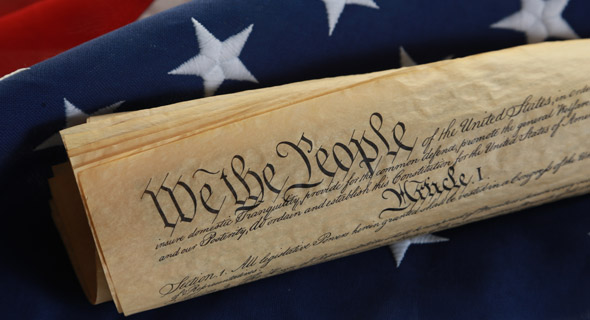
MIT's School of Humanities, Arts, and Social Sciences draws on the expertise of our faculty and colleagues across the Institute to provide resources for understanding the political, economic, and cultural dimensions of national and global challenges — and for serving as engaged citizens.
Gallery of Resources, Publications, and Events
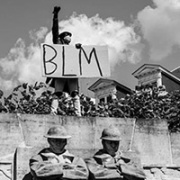
MAKING A JUST SOCIETY
Sustaining the Momentum
Edited by M. Amah Edoh, MIT Professor of Anthropology and Liliane Umubyeyi, co-founder, the African Futures Lab
What will it take to sustain the momentum of movements for racial justice sparked in 2020? Ideas in a new essay collection co-edited by Amah Edoh, MIT Professor of Anthropology, and Liliane Umubyeyi, co-founder/co-director of the African Futures Lab.

SOLVING CLIMATE: HUMANISTIC PERSPECTIVES
Why do some people call climate change an “existential threat”?
The phrase can refer to a literal threat to humanity’s existence, but also to the danger that unchecked climate change can pose to many human cultures and our sense of place in the natural world. "Whether or not climate change becomes a literal extinction threat, it has already changed our relationship with the planet we live and depend on, which will forever alter the way we feel about human existence." — Commentary by MIT Philosopher Kieran Setiya
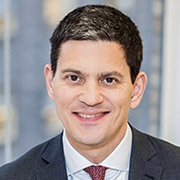
DEMOCRACY | HUMAN RIGHTS
Rt. Hon. David Miliband SM ’90 receives the 2021 Robert A. Muh Alumni Award
His award lecture proposes an "accountability agenda" to restore respect for human rights, democratic norms, and the rights of civilians in combat zones.
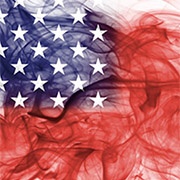
STRENGTHENING DEMOCRACY
The miracle and tragedy of the 2020 election
Professors Charles Stewart III, MIT, and Nathaniel Persily, Stanford
In a must-read analysis, two of the Nation's leading election administration experts discuss: how, during a pandemic, U.S. election administrators organized the most secure election in American history; the "big lie" that catalyzed violence at the Capitol; and current threats to U.S. voting rights and democracy.
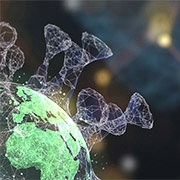
IN THE CLASSROOM | PANDEMIC
For the pandemic, MIT History opens a course to the public via a free, live webinar format.
Hundreds from around the world responded to the opportunity and joined MIT students in the weekly class, "History of Now: Plagues and Pandemic." The experimental webinar format also greatly expanded the scope of expertise available to students, bringing in speakers from fields ranging from microbial biology to economics.

MAKING A JUST SOCIETY
Advancing social justice through music and media
It Must Be Now! explores subject matter that includes institutional racism; environmental, economic, gender, and health injustices; police brutality; and abolitionism.
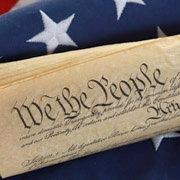
STRENGTHENING DEMOCRACY
What’s Next? Challenges Ahead for the Biden Administration
A series of essays by MIT SHASS scholars, including: Melissa Nobles, Taylor Fravel, Vipin Narang, Dick Samuels, Elizabeth Wood, Barry Posen, Richard Samuels, and John Tirman.
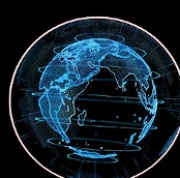
DEMOCRACY
Starr Forum: Global Partnerships in a Time of Crisis
Experts discuss the need for democratic governments to create a contract for shared risks, including Covid-19, climate change, and war.
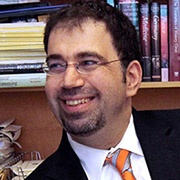
DEMOCRACY
The permanent struggle for liberty
Daron Acemoglu’s new book examines the battle between state and society, which occasionally produces liberal-democratic freedom.

MAKING A JUST SOCIETY
The Bluest Eye turns 50
Commentary by MIT Professor Sandy Alexandre on Toni Morrison's debut novel: "Morrison’s exquisite language has always given her readers a variety of ways, routes, and turns of phrase to understand the world, so perhaps it’s no surprise that she has rendered something like 'structural racism' comprehensible."
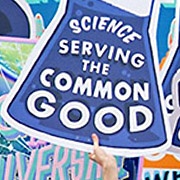
INSIDE THE CLASSROOM
Scientists as engaged citizens
In a new intersectional class from MIT Women's and Gender Studies, (WGS.160/STS.021) students explore how STEM researchers bring their knowledge to bear on behalf of major societal and global issues.
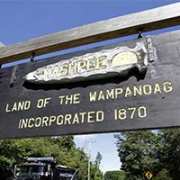
MAKING A JUST SOCIETY
Native American and Indigenous scholarship, education, and creativity in MIT's humanistic fields
This collection highlights works by and about Indigenous and Native American faculty, students, alumni, and visiting scholars in the humanities, arts, and social science fields in the MIT SHASS community.
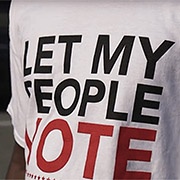
MAKING A JUST SOCIETY
3 Questions: Ariel White on voter rights and re-enfranchisement
"The problems in the Florida case have drawn our attention to how widespread, how life-disrupting, and how racially-disparate the experience of legal debt is for people who have passed through the criminal legal system."
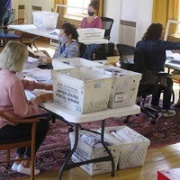
ELECTION 2020
15 August 2020
Which way of casting a ballot is best for you this year? Latest news and research on the 2020 election administration.
The non-partisan MIT Election Lab conducts research and collaborates with other election experts and administrators across the country to help make voting in the U.S. safe, secure, trustworthy, and effective.
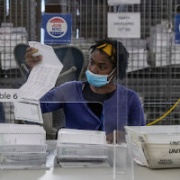
ELECTION 2020
31 July 2020
Research predicts a wave of “lost votes” this fall, further complicating the 2020 election
A new study by MIT election expert Charles Stewart III shows that mail-in-voting has a higher rate of "lost" or uncounted votes than voting in person, further complicating the 2020 election. "If I were advising someone at lower health risk, I would say think about early in-person voting," said Stewart. "But go early...don't wait until the last minute."
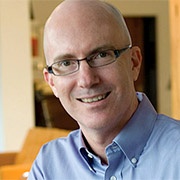
ELECTION 2020
3Q with Charles Stewart III: How to make the November 2020 elections safe and secure
MIT-SHASS News "Will the November 2020 election be delayed? The answer is, 'no.' There is no statutory or constitutional authority to do that. Even if the asteroids are raining on our heads and the zombies are roaming the streets on November 3, we will be voting."
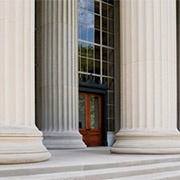
DEMOCRACY AND DEI
Making A Just Society
Resources from the MIT School of Humanities, Arts, and Social Sciences. The Making A Just Society websection includes these categories: Research; Books; the MIT & Slavery Project; Indigenous Peoples; Undergraduate Courses; Free Online MIT Courses; Other MIT Resources; and Elective Affinities, relevant resources beyond MIT.
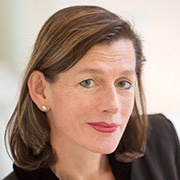
CIVIC PERSPECTIVES
3 Questions: Heather Hendershot on media coverage of the pandemic
MIT comparative media expert discusses the stark differences in pandemic reporting and coverage across US media platforms.
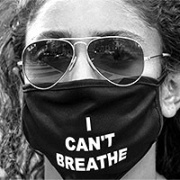
THE MEANINGS OF MASKS
A collective cry for justice | Graham M. Jones
Anthropology
"The mask is one of the most important human artifacts in all of anthropology. It is a tool of transformation that allows its wearers to transcend themselves, taking on timeless roles in ritual dramas, and as actors in a broader social drama."
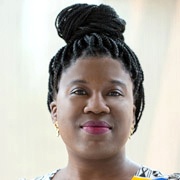
MAKING A JUST SOCIETY
Words + Words + Words
Sandy Alexandre, Associate Professor of Literature, honors and thanks all of the justice-seeking words that came before our 2020 ones.
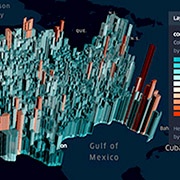
IN THE CLASSROOM
Course Profile: Data and Society
A new course in the Computing and Society Concentration, taught by Eden Medina and Sarah Williams, engages MIT students in the ethics and societal implications of data.
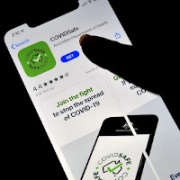
CIVIC PERSPECTIVES
The tension between privacy and coronavirus contact-tracing
KSJ Fellow Anil Ananthaswamy writes in The Boston Globe that "We have to ensure that contact-tracing methods that compromise our privacy don’t become the norm."
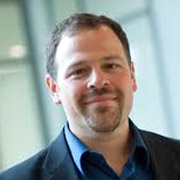
ELECTION 2020
3Q with political scientist Adam Berinsky
Impact of the pandemic on U.S. political life
"As they do in wartime "people are willing to give the government broader latitude, even to curtail civil liberties, to address this pandemic crisis. But this effect is also short-lived. People are willing to give up some civil liberties for months, but not years."
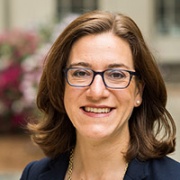
CLIMATE 2020 | HUMANISTIC PERSPECTIVES FROM MIT
Parrish Bergquist '19 | Civic Opinion
"The political challenges of addressing climate change are at least as thorny as the technological challenges, though in different ways."
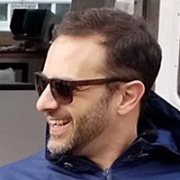
CLIMATE 2020 | HUMANISTIC PERSPECTIVES FROM MIT
KSJ Fellow Thiago Medaglia on science journalism for a world in crisis
"As an environmental journalist, I have a deep connection with the natural world. I've also learned that it is essential to connect with people. As a reporter, you learn that fighting climate change includes informing the public about harmful policies and practices by governments and corporations."
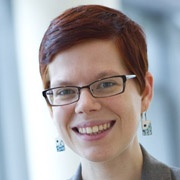
VOTING AND DEMOCRACY
3Q: Ariel White on the impact of incarceration on voting
"The story here is not just about whether people are legally allowed to vote, but about whether they are practically able to vote, whether they know they're allowed to vote, and whether they think they have any reason to do so."
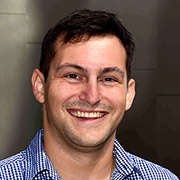
VOICES OF MIT SHASS GRADUATE STUDENTS
Meet Marc Aidinoff, PhD candidate
"What does it mean when civil rights become about access to computers and the Internet? When lack of Internet access is considered a form of poverty? These questions were getting under my skin. I wanted to know how social and economic policy were tied to changing ideas about technology."
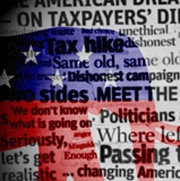
DEMOCRACY AND MEDIA
Does cable news shape your views?
MIT Political Science study finds partisan news coverage has a bigger impact on viewers without strong media preferences.
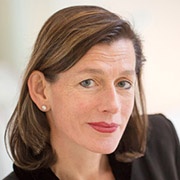
DEMOCRACY AND DISCOURSE
3 Questions: Media historian Heather Hendershot on U.S. political discourse
Media historian and expert on conservatism discusses the current state of political discourse and media in the U.S.
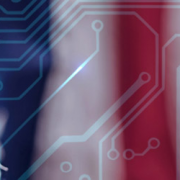
DEMOCRACY
MIT launches Election Data and Science Lab
The lab is dedicated to improving elections, using research, evidence, and analysis. Founded by Charles Stewart III, Kenan Sahin Distinguished Professor of Political Science, the Lab will address multiple audiences of academic researchers, election practitioners, and the general public. It will serve a unique and independent role as it applies scientific principles to empirical questions about the administration of American elections.
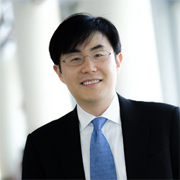
STRENGTHENING DEMOCRACY
3Q: In Song Kim’s LobbyView.org shines a bright light on Washington lobbying
LobbyView.org makes it simple to follow the path of money in politics.
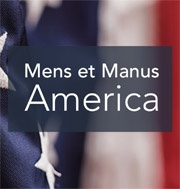
DEMOCRACY
Mens et Manus America Initiative | Portal
This non-partisan MIT initiative convenes research-informed lectures and discussions to explore the major, long-term social, political, and economic issues brought to light in the 2016 US presidential election. We are asking: What can MIT do to help address current challenges in the U.S., and bolster the health of our democracy? Join us as we frame the issues and generate ideas for making a positive impact.
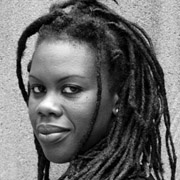
21ST CENTURY CITIZENSHIP
The world as we think the world should be | Meet theater director Charlotte Brathwaite
Charlotte Brathwaite's theater works in response to today's culture of violence violence is inspired by James Baldwin's message of universal love: "If I love you," he said, "I have to make you conscious of the things you do not see."
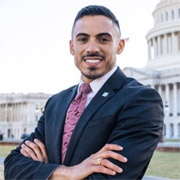
SOCIAL INNOVATION: RESEARCH TO POLICY
Samuel Rodarte '13 | Aero-Astro + Latinx Studies + PoliSci
Shaping Public Policy in the Nation's Capital
With dual MIT degrees in engineering and humanities fields, and a social science minor, Samuel Rodarte '13 could have found a top job in almost any enterprise from startup to multinational corporation. Instead, he chose to join generations of alumni who have put their MIT skills to work shaping public policy in Washington, D.C.
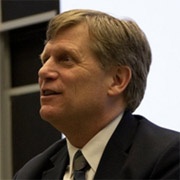
DEMOCRACY | INTERNATIONAL RELATIONSHIPS
After the Cold War, an uncertain peace
In MIT talk, Michael McFaul, former U.S. ambassador to Russia, explores tensions between the two countries.
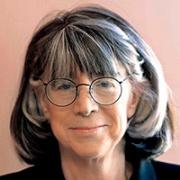
ETHICS, COMPUTING, AND AI
Welcoming Remarks | Susan S. Silbey
Celebration for the MIT Schwarzman College of Computing
28 February 2019
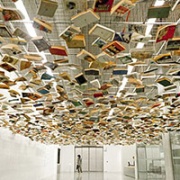
DEMOCRACY
Reading for the Midterm Elections 2018
As the 2018 midterms approach, MIT SHASS faculty offer a selection of books to consider for your reading list along with notes on the insights each book holds for this moment in American history.
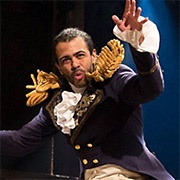
ELECTION INSIGHTS 2018
Musical Playlist | from the MIT Music community
As America heads toward the 2018 midterm elections on November 6, MIT's Music community has prepared a wide-ranging Election Playlist as well as brief commentaries on why each work is recommended for this election season.
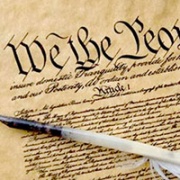
ELECTION INSIGHTS 2018
Daron Acemoglu | On Civil Society and Democracy
"What is written in a constitution can take a nation only so far unless society is willing to act to protect it. We have to keep reminding ourselves that the future of our much-cherished institutions depends not on others but on ourselves, and that we are all individually responsible for our institutions."
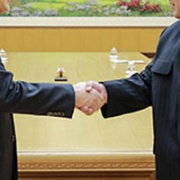
ELECTION INSIGHTS 2018
Vipin Narang | On the US/North Korea Relationship
"The North Korean nuclear program is not something to be 'solved' — that window has closed — it is an issue to be managed. The good news is that the United States has a lot of experience managing the emergence of new nuclear weapons powers."
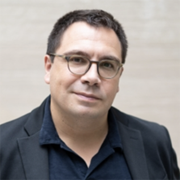
Civil rights in a complex world
Professor Bruno Perreau examines the relationships between personal identity and public institutions.
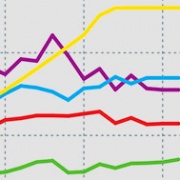
Q&A with economist Thomas Piketty
On globalization and growing inequality
"Globalization today is at a crossroad. It is confronted with major challenges, including rising inequality and global warming. At the same time there is a lot of skepticism about what governments can do to regulate global capitalism. Looking back at previous globalization episodes is critical, first to clarify the specificities of our time." — Thomas Piketty
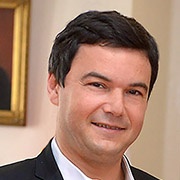
MAKING A JUST SOCIETY
At MIT, Thomas Piketty calls for policies to reduce worldwide inequalities
Globalization and the expanding ranks of the educational elite have contributed to the rise in inequality worldwide, but political policy changes can impact these trends, French economist Thomas Piketty told a packed house at MIT’s Kresge Auditorium on Tuesday, July 31.
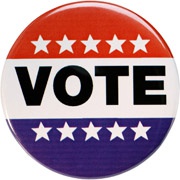
21ST CENTURY CITIZENSHIP
Election Insights 2016
12 research-based perspectives from MIT
The 2016 presidential election brought to the fore a number of political, economic, and cultural issues that scholars in the MIT School of Humanities, Arts, and Social Sciences (MIT SHASS) think about deeply as part of their ongoing research. Here, 12 faculty members offer their perspectives on topics ranging from economic security to gender bias to the state of the U.S. electoral system itself. Follow links in each section for further discussion.
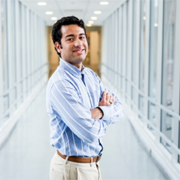
William Rodriguez: Helping others broaden their horizons
MIT senior and Model UN leader William Rodriguez works to encourage the global exchange of ideas
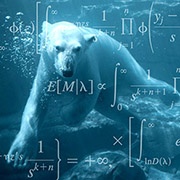
INSIDE THE CLASSROOM
The moral calculus of climate change
In a mathy philosophy class, MIT students explore the risks, probable outcomes, and ethical implications of living in a warming world.
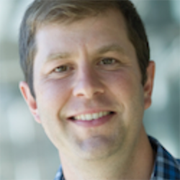
RESEARCH | 21st C. CITIZENSHIP
Study by Devin Caughey demonstrates the people's power.
New study shows that state-level policy in the U.S. is responsive to public opinion.
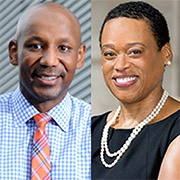
21st C. CITIZENSHIP | LEGACY OF SLAVERY
3Q Interview with Dean Nobles, Professor Wilder
"The MIT community has the opportunity to be involved in this endeavor in real time, learning from the emerging findings. and making informed suggestions to the leadership about potential responses." — Dean Melissa Nobles
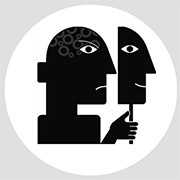
MENS ET MANUS AMERICA | 21st C. CITIZENSHIP
MMA explores fake news and real gender issues
MIT’s Mens et Manus America (MMA) initiative shed light on two major issues on the political landscape — fake news and gender politics — during back-to-back events on April 17 and 18.
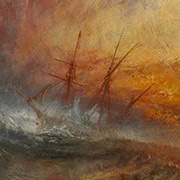
MAKING A JUST SOCIETY
MIT and the Legacy of Slavery Project
Stories, Videos, Community Dialogue
“I believe the work of this class is important to the present — and to the future. Something I have always loved about the MIT community is that we seek, and we face, facts. What can history teach us now, as we work to invent the future? How can we make sure that the technologies we invent will contribute to making a better world for all?" — L. Rafael Reif, President of MIT
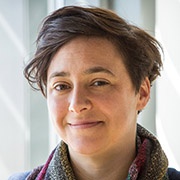
Q&A with historian Caley Horan
On innovation, risk-taking, and cultural transformation
Assistant Professor Caley Horan is an historian of the U.S. interested in the cultural and intellectual transformations of the post-WWII era. SHASS Communications spoke with her about her book manuscript, Actuarial Age, which explores the cultural life of insurance and the role of risk-based thinking in shaping American institutions and daily life during the second half of the twentieth century.
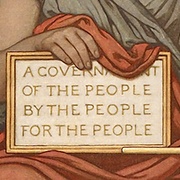
21st C. CITIZENSHIP
Is democracy dying?
At a recent Starr Forum, scholars and journalists examined the current pressures on democratic systems of rule and suggested some measures to protect them. Held in the Stata Center, the event drew a standing-room only crowd of more than 300.
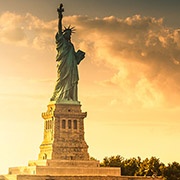
MENS ET MANUS AMERICA | 21st C. CITIZENSHIP
Analyzing US immigration policy
Experts cite immigration as an engine of U.S. success; lament the human damage being done by current policies, and see signs of hope.
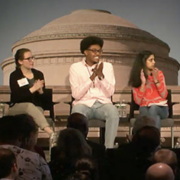
RESEARCH | 21st C. CITIZENSHIP
Institute community explores initial findings from “MIT and Slavery” class.
Students in an undergraduate research course bring the Institute into national conversation about universities and the legacy of slavery. “I believe the work of this class is important to the present — and to the future,” says MIT President L. Rafael Reif. “What can history teach us now, as we work to invent the future? How can we make sure that the technologies we invent will indeed contribute to making a better world for all?"
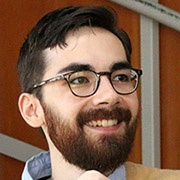
CITIZENSHIP | IMPACT OF LANGUAGE
Applying philosophy for a better democracy
In a new philosophy class, MIT students explore how language affects censorship, dissent, lies, and propaganda.
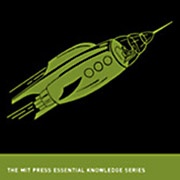
SOCIAL INNOVATION | CITIZENSHIP
3Q: Nick Montfort on shaping the future
“Whether you’re an entrepreneur or in an established business, an activist, writer, or artist: How have people productively engaged the future?”
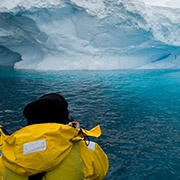
21st C. CITIZENSHIP | SCIENCE COMMUNICATION
Bridging the gap between citizens and scientists
Alumni of the MIT SHASS Graduate Program in Science Writing inform the public about critical issues ranging from medical breakthroughs to climate change.
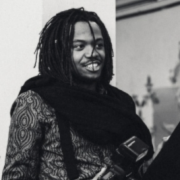
21st C. CITIZENSHIP
Connecting through conversation
Whether in Cambridge or Shanghai, MIT senior Joshua Charles Woodard seeks to learn from others’ perspectives and challenge his own.
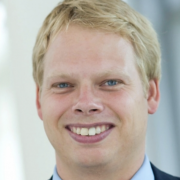
RESEARCH | 21st C. CITIZENSHIP
Why some Muslim clerics become jihadists
In his new book, political scientist Richard Nielsen proposes a “blocked ambition” hypothesis.
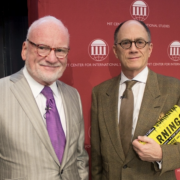
DEMOCRACY | SECURITY
Why we should welcome warnings
At MIT event, experts call for a new approach to worst-case scenarios.
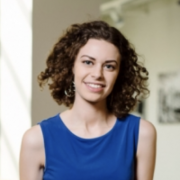
Bridging the science-policy divide
For MIT senior Talia Weiss, physics and theater have provided a springboard for new interests in political science.

21ST CENTURY CITIZENSHIP
Probing the behavior of an international bully
Political science doctoral student Ketian Zhang sheds light on China's use of coercion in foreign policy, hoping to span a deep divide.
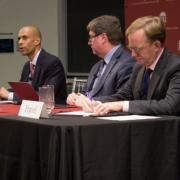
RESEARCH | 21ST CENTURY CITIZENSHIP
Nuclear and present danger
MIT security experts Vipin Narang, Jim Walsh, and Taylor Fravel discuss how to lower tensions between the U.S. and North Korea.

21ST CENTURY CITIZENSHIP
Connecting through conversation
Whether in Cambridge or Shanghai, MIT senior Joshua Charles Woodard '17 seeks to learn from others’ perspectives and challenge his own.
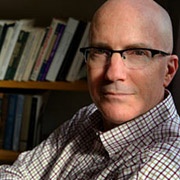
BASIC RESEARCH | 21st CENTURY CITIZENSHIP
Mens et Manus America examines data, technology, and election integrity
Various concerns about the security of U.S. elections have arisen over the past twenty years, some more significant that others. While many studies have shown that voter fraud, for instance, is vanishingly rare in the U.S., what about the state of electoral administration, lost votes, and cyber attacks? On Oct. 16, two experts teamed up at MIT to share insights from their research on what is and isn't working in America's electoral system.
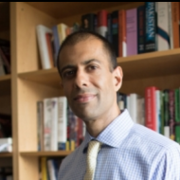
21st C. CITIZENSHIP | BASIC RESEARCH
Making sense of nuclear threats
MIT political scientist Vipin Narang explains the strategies of new nuclear powers. “We’re not talking about Cold War nuclear strategy any more. We’re talking about small states with small arsenals and itchy trigger fingers. It really changes how we think about nuclear risks and nuclear dangers as a result.”
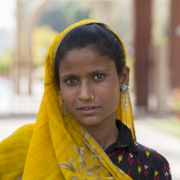
SOCIAL INNOVATION
How J-PAL thinks globally and acts locally
Can an antipoverty program work in different settings? A new report presents a user’s guide to a tough issue.
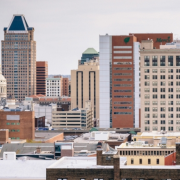
RESEARCH TO POLICY | CITIZENSHIP
J-PAL North America partners with local governments to tackle homelessness and reduce incarceration
Selected cities and counties will receive funding and technical support from J-PAL to test innovative strategies in the fight against poverty.
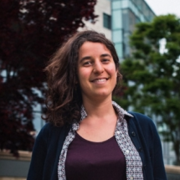
RESEARCH TO POLICY | CITIZENSHIP
Investigating the trap of unemployment
MIT Economics PhD student Aicha Ben Dhia studies France’s labor market from the perspective of local job-seekers.
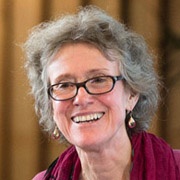
21ST CENTURY CITIZENSHIP
At MIT, Arlie Hochschild discusses U.S. political divisions and finding common ground
The event centered on Hochschild's most recent book, Strangers in Their Own Land: Anger and Mourning on the American Right (The New Press, September 2016).

21ST CENTURY CITIZENSHIP
Breaking through gridlock: productive conversations in a polarized world
A Mens et Manus America conversation with Jason Jay. "We have to have conversations if we are going to effect change," said Jay, who outlined findings from his new book. "We change larger conversations by changing one conversation at a time."
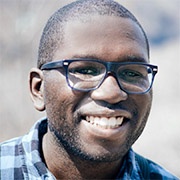
21ST CENTURY CITIZENSHIP
Race and Racism in the 2016 Election
Slate chief political correspondent Jamelle Bouie joins MIT’s Seth Mnookin to explore how race and ethnicity framed the election.
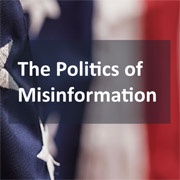
21ST CENTURY CITIZENSHIP
Mens et Manus America examines the politics of misinformation
Exploring current U.S. social, political, and economic challenges: Professor Adam J. Berinsky joined Professor Ezra Zuckerman Sivan to share political science and sociological research about the impact of rumors and falsehoods on America's political process. Agustín Rayo, associate dean of the School of Humanities, Arts, and Social Sciences moderated.
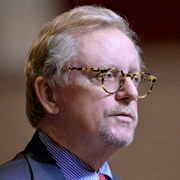
Q&A with political theorist John Tirman
On immigration, collaboration, and the hidden costs of war
"It is remarkable that we do not measure the costs of war in any meaningful way. The costs come in many shapes and sizes: mortality and disability, loss of livelihoods and homes, displacement, the destruction of clean water resources and sanitation facilities, the disruption of education for children, ecological devastation, and many others. All wars produce these results, yet no country, including the United States, has the will to understand and calculate these costs."
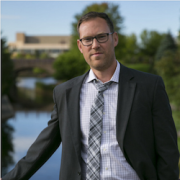
21ST CENTURY CITIZENSHIP
Michael Lee: "The Conservative Canon Before and After Trump"
In this April 28 CMS/W podcast, Michael J. Lee charts the vital role of canonical post–World War II (1945–1964) books in generating, guiding, and sustaining conservatism as a political force in the United States.
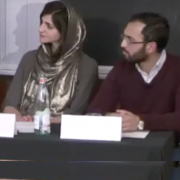
21ST CENTURY CITIZENSHIP
Being Muslim in America and at MIT
MIT alum and students explored how discriminatory rhetoric influences public opinion and its impact on the daily lives of Muslim-Americans.
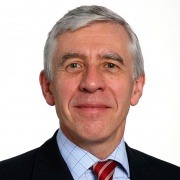
21ST CENTURY CITIZENSHIP
Brexit, Europe, and Trump: John Whitaker "Jack" Straw, Former Foreign Secretary, U.K.
Video of a Starr Forum panel discussion held on April 6, 2017, sponsored by the MIT SHASS Center for International Studies
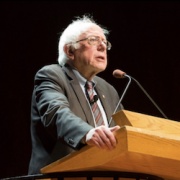
21ST CENTURY CITIZENSHIP
Senator Sanders Addresses MIT: Presidential Election and the Political Process
In MIT speech, Senator Sanders contends future of U.S. politics "must be progressive."
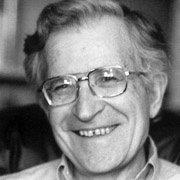
21ST CENTURY CITIZENSHIP
Racing to the Precipice: Global Climate, Political Climate
Video of a Starr Forum panel discussion held on March 23, 2017, sponsored by the MIT SHASS Center for International Studies
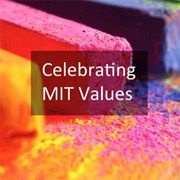
21ST CENTURY CITIZENSHIP
Uniting through Voice and Song
On the evening of November 17, 2016 faculty, staff, and students came together to affirm the enduring values that unite the MIT community.

21ST CENTURY CITIZENSHIP
Mens et Manus America initiative launches with documentary film event
200 students and faculty attend kickoff event as SHASS and Sloan begin a non-partisan, research-based exploration of current U.S. social, political, economic challenges.
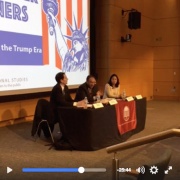
21ST CENTURY CITIZENSHIP
The Fight Over Foreigners: Visas and Immigration in the Trump Era
Video of a Starr Forum panel discussion held on February 28, 2017, sponsored by the MIT SHASS Center for International Studies
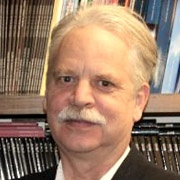
21ST CENTURY CITIZENSHIP
From Stereopticon to Telephone: The Selling of the President in the Gilded Age
Charles Musser: “19th century media forms set in motion not only a new way of imagining how to market national campaigns and candidates; they also helped to usher in novel forms of mass spectatorship.”
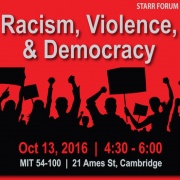
MAKING A JUST SOCIETY
Racism, Violence, and Democracy
Video of a panel discussion on November 16, 2016, sponsored by the MIT SHASS Center for International Studies.
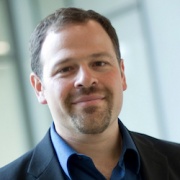
21ST CENTURY CITIZENSHIP
The Power of Perceptions
Study shows how information sources affect voters
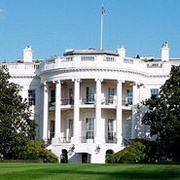
21ST CENTURY CITIZENSHIP
Trump’s election: What does it mean for you?
Video of a Starr Forum panel discussion held on Feb 28, 2017, sponsored by the MIT SHASS Center for International Studies
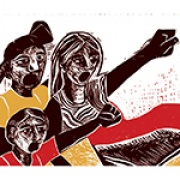
ARTS INNOVATION
Dissolve Inequality: A Visual Arts Summit
A book launch & panel discussion: How can visual art transform our understanding of protest, value, and change?
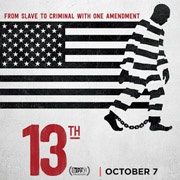
MAKING A JUST SOCIETY
Screening of the film "13th"
America makes up 5% of the world's population, yet locks up 25% of the world's prisoners. Ava DuVernay's acclaimed film "13th" explores how we got here. Screening sponsored by MIT SHASS Program in Women and Gender Studies
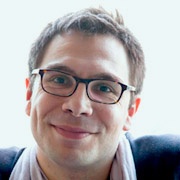
21ST CENTURY CITIZENSHIP
A new fight with old battle lines
Book explores what France’s LGBTQ rights battle says about identity and belonging.
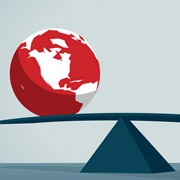
HEALTH OF THE PLANET | CITIZENSHIP
At forum, MIT community tackles tough ethical questions of climate change
Why is it so hard for human beings to address climate change? What can motivate effective action?
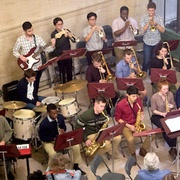
21ST CENTURY CITIZENSHIP
No Walls: The making of a socio-political statement in music
Commentary by Mark Sumner Harvey
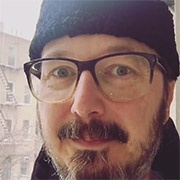
21ST CENTURY CITIZENSHIP
An Evening with John Hodgman
Humorist John Hodgman and MIT’s Seth Mnookin discussed the aftermath of the 2016 election and where to go from here.
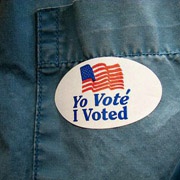
SOCIAL INNOVATION | 21st C. CITIZENSHIP
How healthy is the U.S. voting system?
Professor Charles Stewart III explains why the U.S. electoral system is strong and how MIT research is making the voting process even more seamless. This fall Stewart is leading a nationwide research project: on Election Day 2016, some 800 students from more than 25 universities, including MIT, will be collecting data at polling places across the country, as part of the "Polling Place of the Future" project to help further improve the nation's electoral process.
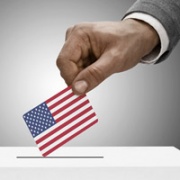
MAKING A JUST SOCIETY
Election Insights: Ariel White on Racial Attitudes and Bias
"There's evidence that government is less responsive to people of color. In my work with Julie Faller and Noah Nathan, we have found that election officials are less likely to respond to informational questions about voting eligibility when they're sent from Hispanic-sounding names than when they're sent by non-Hispanic white names. These officials didn't respond rudely to Hispanic questioners; they simply didn't write back as often, and didn't answer their questions as well."
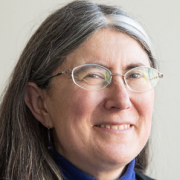
21ST CENTURY CITIZENSHIP
Election Insights 2016: Elizabeth Wood on the Putinization of Politics
"The casualty of the 'Putinization' of American elections is the creation of a Reality TV style of campaigning based on machismo, a loss of authenticity, and a failure to acknowledge the importance of institutions, laws, and solid economic policies designed to increase the general welfare of the nation."
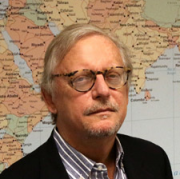
MAKING A JUST SOCIETY
Election Insights 2016 | John Tirman on Immigration
"Negative attitudes toward immigrants have many roots. The economy and 'job stealing' have often ranked high on the list of grievances, but several studies — including one just released by the National Academy of Sciences — demonstrate that immigrants of all kinds boost the U.S. economy overall and hurt few if any native-born Americans. So, what really mobilizes anti-immigrant attitudes?"
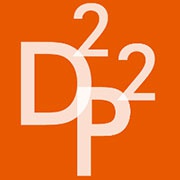
SOCIAL INNOVATION | CITIZENSHIP
J-PAL and MIT Economics launch D2P2 Lecture Series
With their “D2P2: Data. Decisions. Public Policy.” lecture series, J-PAL and MIT Economics aim to increase awareness of their work on campus and in Greater Boston.

SOCIAL INNOVATION | CITIZENSHIP
Christine Walley and Chris Boebel on the Exit Zero Project
The Exit Zero Project, founded by Christine Walley and Chris Boebel, is a transmedia effort to tell the story of the traumatic effect of deindustrialization on Southeast Chicago. The three components of the project — book, documentary film, and in-progress interactive website — use family stories from the once-thriving steel mill communities of Southeast Chicago to consider the enduring impact of the loss of heavy industry and its role in widening class inequalities in the United States.
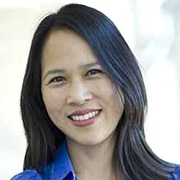
RESEARCH TO POLICY: GOVERNANCE
Lily Tsai receives 2015 Levitan Prize for research to empower citizens
Founder of MIT Governance Lab creates immersive opportunities for MIT students to research new forms of civic engagement around the world.
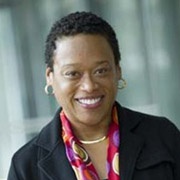
RESEARCH TO POLICY | ADVANCING JUSTICE
3 Questions | Melissa Nobles on advancing racial and restorative justice
Melissa Nobles, Dean of the MIT School of Humanities, Arts, and Social Sciences, and Professor of Political Science, researches historical injustices in democracies. MIT SHASS Communications spoke with Nobles in 2015 about the ongoing aftermath of shooting deaths in Ferguson, New York, and Cleveland, and what her research suggests about the current efforts to advance civil rights in America.
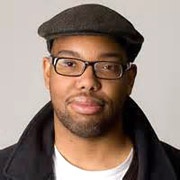
MAKING A JUST SOCIETY
Writer Ta-Nehisi Coates dazzles during two years as Visiting Scholar
“What I tell my students is that you here at MIT have access to great knowledge—more knowledge than 99.9 percent of people who have ever been on planet Earth, and I think you have some sort of moral duty to learn how to communicate that. Knowledge is power; power shouldn’t be hoarded.”
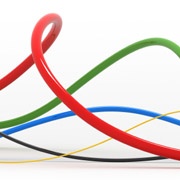
SOCIAL INNOVATION + EDUCATION
Communication Forum conducts a conversation for scholars, citizens
How are new technologies transforming public discourse? Are traditional news outlets still influential in framing the news we get online? What are the legal dangers for publishing secrets in the crowd-sourced era? Founded in 1978 by pioneering media scholar Ithiel de Sola Pool of MIT’s Political Science Department, the forum engages leading scholars, journalists, media producers, and citizens in discussions on emerging media in a changing world.
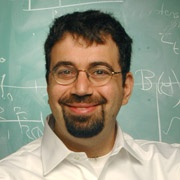
RESEARCH TO POLICY: ECONOMIC STABILITY
MIT economist Daron Acemoglu on inequality and the financial crash
This excellent podcast interview with Daron Acemoglu, Charles P. Kindleberger Professor of Economics, examines the role of income inequality in the financial crash.
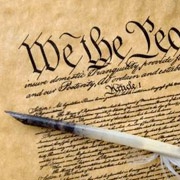
DEMOCRACY | AMERICAN HISTORY
Maier's Ratification delivers new knowledge about the adoption of the US Constitution, the most consequential debate in American history
"A stunning examination of... 'the beginning of American national politics' — the debate that explains the way we Americans govern ourselves, resolve disputes, conduct diplomacy, choose leaders and protect our freedoms."